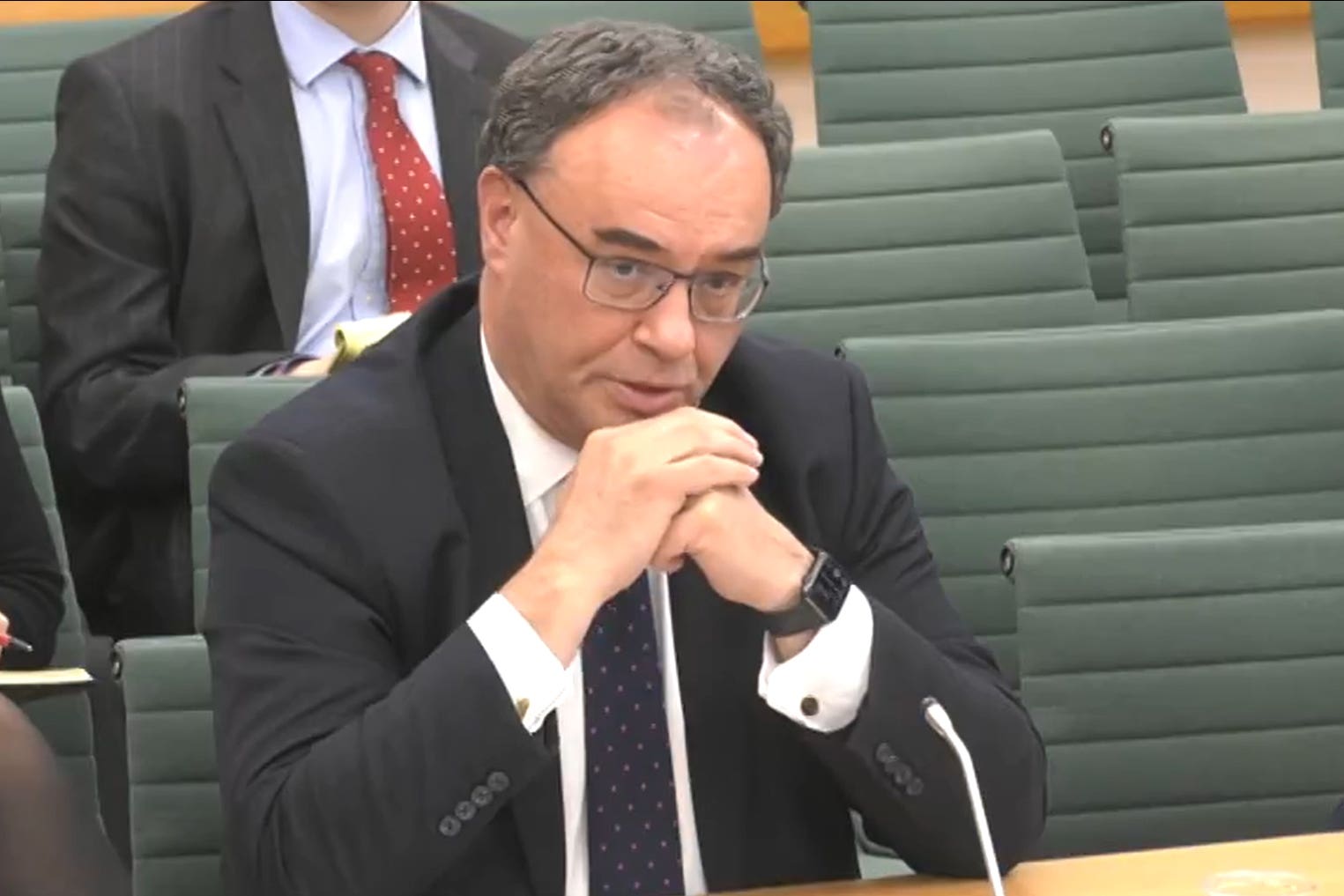Mini-budget damaged UK’s reputation, says Bank governor Bailey
Andrew Bailey said it will take longer to fix the UK’s reputation than the impact the mini-budget had on the gilt market.

Your support helps us to tell the story
From reproductive rights to climate change to Big Tech, The Independent is on the ground when the story is developing. Whether it's investigating the financials of Elon Musk's pro-Trump PAC or producing our latest documentary, 'The A Word', which shines a light on the American women fighting for reproductive rights, we know how important it is to parse out the facts from the messaging.
At such a critical moment in US history, we need reporters on the ground. Your donation allows us to keep sending journalists to speak to both sides of the story.
The Independent is trusted by Americans across the entire political spectrum. And unlike many other quality news outlets, we choose not to lock Americans out of our reporting and analysis with paywalls. We believe quality journalism should be available to everyone, paid for by those who can afford it.
Your support makes all the difference.Former prime minister Liz Truss’s mini-budget damaged the UK’s reputation abroad, the governor of the Bank of England has told MPs.
Andrew Bailey said people he had met in the US during the fallout from the announcement in September expressed disbelief at the steps that the Government had taken.
“We have damaged our reputation internationally because of what happened,” he said while speaking to the Treasury Select Committee.
“I was in Washington… at the IMF (International Monetary Fund) annual meetings, which is one of the biggest events of the year internationally.
“People were saying ‘we didn’t think the UK would do this’.
“It will take longer to rebuild that reputation than it will be to correct the gilt curve, so we have to tread carefully.”
He said that the reputation “has taken a knock”.
Ms Truss became the shortest-serving prime minister in British history and Kwasi Kwarteng one of the shortest-serving chancellors amid the fallout following the mini-budget.
It led to a massive run on the pound, pushing the currency to its lowest point against the US dollar in history, while the cost of government borrowing soared.
Ben Broadbent, a member of the Monetary Policy Committee (MPC) which sets interest rates, said a lot of the major impacts of the mini-budget on exchange rates have dissipated.
He added: “Markets will always pay attention to policymakers, the events at the end of September are a pretty stark illustration of that. But as far as we can tell, as things stand most of it is gone.”
The UK is now facing a potential eight-quarter recession, according to Bank forecasts released earlier this month – the longest consecutive period of decline since reliable records began a century ago.
The last two or three quarters of that projected decline in GDP are pretty small, so it wouldn’t take much of a tilt to shave a couple of quarters off the projected length of the recession
Mr Broadbent said it would be easy for this recession to be shorter or longer than expected.
“The last two or three quarters of that projected decline in GDP (gross domestic product) are pretty small, so it wouldn’t take much of a tilt to shave a couple of quarters off the projected length of the recession,” he said.
“So, I would not stand squarely behind the length and say this will definitely happen, it could easily turn out to be a little bit shorter or a little bit longer.”
Quizzed on the impact of Brexit, fellow MPC member Dr Swati Dhingra said that real wages are lower in the UK because of the 2016 vote.
Dr Dhingra, who is also a professor at the London School of Economics, said: “It’s undeniable now that we’re seeing a much bigger slowdown in trade in the UK compared to the rest of the world.”
She added: “The simple way of thinking about what Brexit has done to the economy is that in the period after the referendum there was the biggest depreciation that any of the world’s four major economies have seen overnight.
“That contributed to increasing prices and reduced wages – and I’m not talking simply through real wages, but also through nominal wages – we think that number is about 2.6% below the trend that real wages otherwise would have been on.”